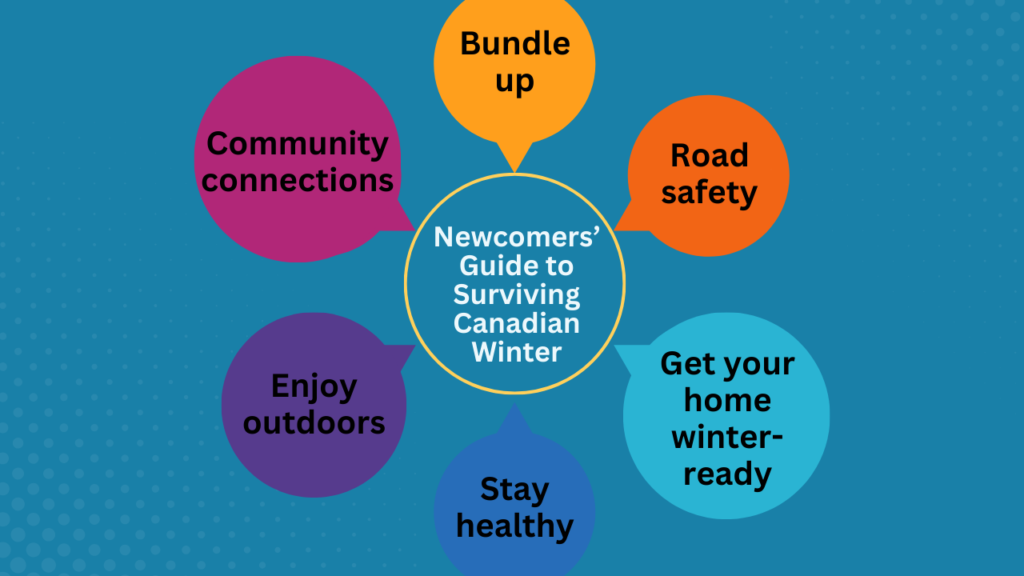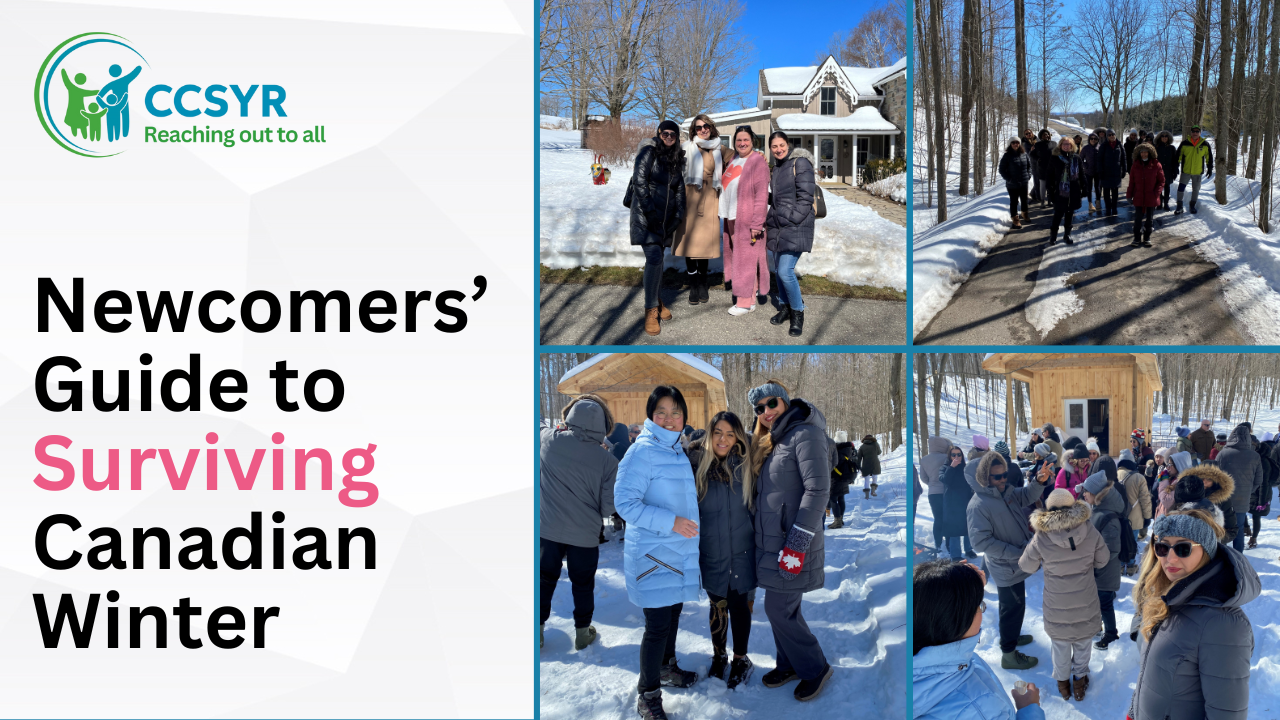If you have heard tales about the harsh, dark, and freezing days and are apprehensive about your first winter in Canada, you may rightfully feel nervous. Surviving the challenges may not be easy, but with our newcomers' guide to Canadian winter, you can enjoy the season without compromising your safety. The key is to plan, stay informed, prioritize your needs, and act in advance so that the blizzards, below-freezing temperatures, icy roads, and high winds don't stall your daily lives as new immigrants.
Winter tips for beginners

Bundle up
Dress appropriately to stay warm and brave the extreme cold. And the guidelines differ depending on the temperature, windchill, and which place you are heading to. For example, how you dress up for a long outdoor commute differs from your choice of clothes while sending the children to school. For days with drastic temperature fluctuations, you should also use multiple layers. It's also essential that you shop around before buying winterwear, including shoes and accessories, because they are pretty expensive.
Road safety in winter
For most newcomers experiencing their first winter, the thought of driving on roads filled with snow, slush, and ice can be nerve-wracking. Set aside considerable time before you leave your home to clean the snow and ice thoroughly off your car. Driving in winter may require adequate use of safety tips such as going at reduced speed, maintaining longer than usual space between vehicles, keeping the fog light on, having a winter kit, and many more.
Get your home winter-ready
With the help of our newcomers' guide to survive your first Canadian winter, you will understand the importance of preparing your home before the brutal cold hits. Use the recommended thermostat settings at 20-22 degrees Celsius when you are home and 17-19 degrees at night or when you are away. Get your furnace checked and use humidifiers to help maintain ideal humidity in the house. Also, follow guidelines to avoid frozen pipes before the temperatures drop to sub-zero and eventually lead to high plumbing bills.
Stay healthy in winter
Reduced physical activities, lack of sun, shorter days, and the harsh winter often act as invisible threats to maintaining physical and mental well-being during the winter months. Usually, for new immigrants rebuilding their lives, staying healthy becomes less of a priority, resulting in illnesses and reduced immunity. Focus on your diet, take immunity-boosting supplements, practice isolations when sick, and follow your family doctor's advice to stay healthy and fit during this period.
Enjoy the snowy outdoors
Experts always encourage newcomers to explore the Canadian winter outdoors simply because it's beautiful despite being daunting. It would be best to bundle up following the weather prediction and safety tips to enjoy adventures like skating, sledding, tobogganing, and snowball fight. Winter tips for beginners would also include taking walks when the temperatures are milder.
Explore your community
In winter, the freezing temperatures and darker days often lead to loneliness, depression, and isolation among newcomer families lacking an established social network to mingle with. It's always better to reach out to local community organizations, find out about holiday events, participate in library programs in your neighbourhood, and organize close-knit social gatherings to get some human warmth.
Where to find Winter Guide for Canadian newcomers
Are you feeling overwhelmed with where to start preparing, whom to reach for help or where to find resources for tips on Canadian winter? Your local settlement organization or community-building agency can be your go-to place at this moment for the hand-holding support that you need. Catholic Community Services of York Region has been serving newcomers for decades to overcome their challenges, whether with finding a job, learning English, or something more immediate like winter guide. For more information on our services, programs, and workshops, click here.

